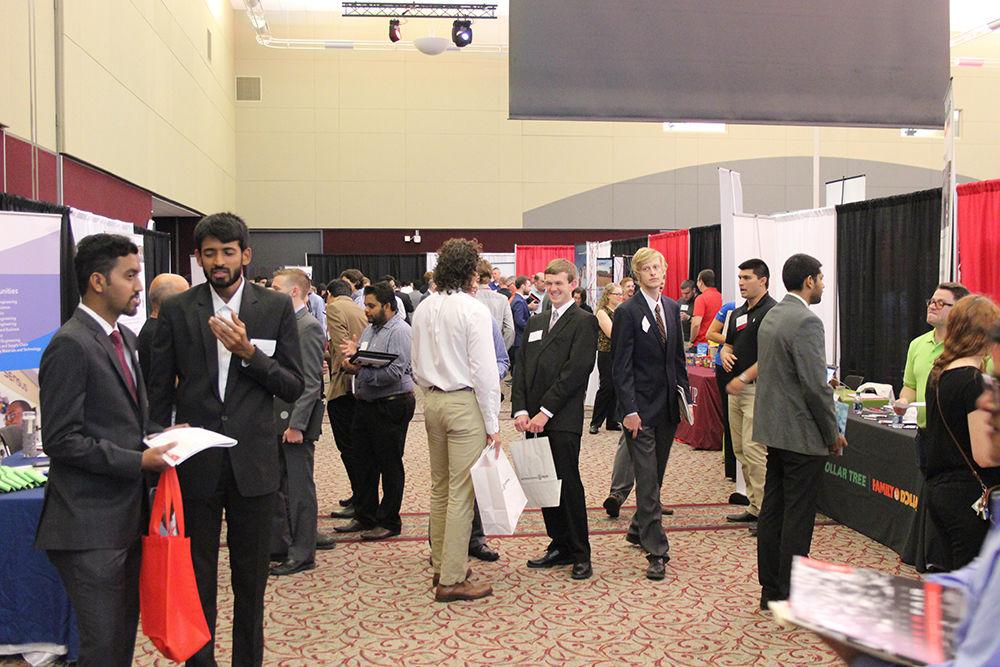NC State hosts a variety of career and internship fairs throughout the year, and the staff at the Career Development Center has outlined several key ways students can prepare for such events.
D. R. Ingram, associate director of student career services at the Career Development Center, said the key for students is preparation in advance.
“Do research about the companies and identify what positions you are interested in applying for,” Ingram said. “That will let the employer know that the student knows what they want, and it makes a huge difference when the student is knowledgeable about the posts available.”
Students should also be prepared with a strong elevator pitch and resume, Ingram said. An elevator pitch is a short description of the student’s background and experience.
When asked about how to write a good resume, Ingram said the most important thing students should keep in mind is to make it neat and easy on the eye.
“Try to work toward having a good, balanced resume,” Ingram said. “It needs to be a document that is welcoming to read and easy to navigate.”
Dr. Kelly Laraway, director of employer relations at the Career Development Center, added that it is equally critical for students to have in-depth understanding of the content of their resumes.
“The resume is very important, but it’s also very important for the student to be able to answer questions about their resume,” Laraway said.
She also said that students need to be fully prepared for interviews when they step inside a career fair.
“They need to be ready for the possibility of having an interview the same day or the next day,” Laraway said. “Companies want to connect with students, immediately interview them and potentially give them offers and secure them.”
In addition to preparing a strong resume and elevator pitch, Laraway said students need to look the part, which is something many students neglect.
“We are seeing trends in work wear change to be much more on the casual side,” Laraway said. “However, when you go to a career fair, that’s the time they’re going to remember you. So you don’t want to go in your business casual or casual attire; you want to go in your nicest, most professional outfit.”
Students having difficulties finding professional attire can visit the Wolfpack Styled Professional Clothing Closet at the Career Development Center. It is a donation-based clothing closet, and there are professionals to help students construct their business formal outfits.
Joe McConnell, a career ambassador and third-year studying industrial and systems engineering, said an important strategy students should follow is creating an A-tier and B-tier list of companies at the career fair, going to the B-tier first as a warm-up.
“If you’re really nervous before the career fair, never go up to your A-tier companies first,” McConnell said. “You want to go up to a company that is not at the top for you, so that even if you get super nervous and can’t say anything, it’s not going to ruin you. Work your way up until you feel comfortable.”
McConnell said students should sometimes consider going to career fairs that are unrelated to their majors.
“Most career fairs are open to everyone,” he said. “You can go and receive good information about applying or even bag an interview for that company.”
Getting started with career fairs as early as possible is key, according to Arnold Bell, executive director of the Career Development Center. Bell said students should start attending career fairs in their first year and not wait until they are desperately searching for a job.
“It is really important for students to [attend career fairs] early on so they know what to expect,” Bell said. “If you attend as a freshman and get a lay of the land, you are more strategic as a sophomore or a junior when you are actually on a mission. If you wait until you really need something to attend, it can be really overwhelming.”
Students who are interested in learning more can visit the Career Development Center in Pullen Hall or view the career guide available on its website.








